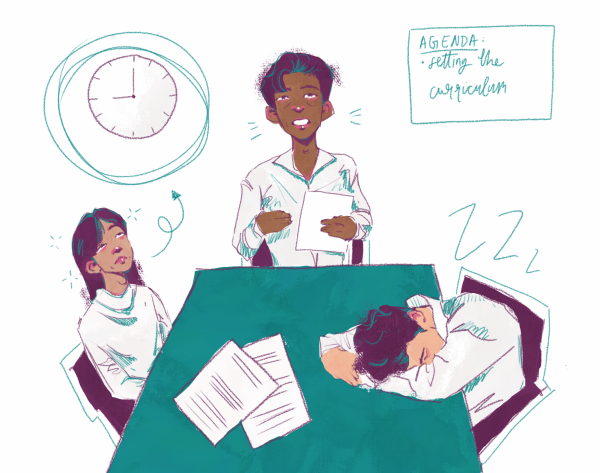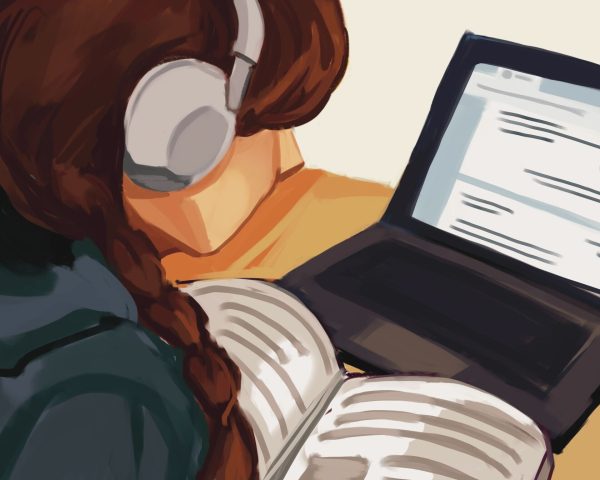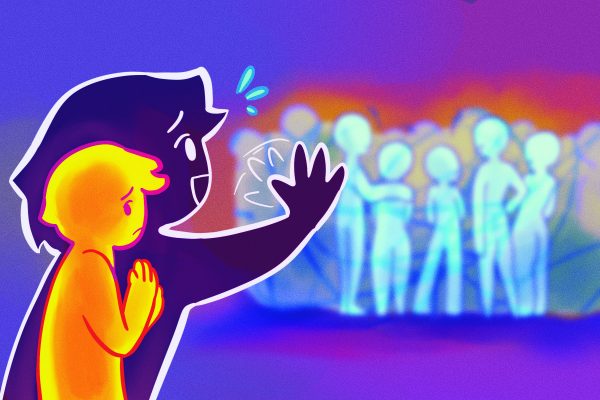No-homework nights disadvantageous
The attempts made to alleviate stress create more of a burden
As students in high school, we are subject to daily homework that can take us hours to finish. The workload never seems to end, and we constantly feel as if we have been pushed to our limit. Thus, the idea of having no-homework nights at Palo Alto High School every now and then sounds like an appealing way to ease the stress and give us a break.
Unfortunately, whether no-homework nights are implemented either unofficially by teachers or officially by administration, they often have the opposite effect for they end up adding even more stress to students’ schedules. In many cases, especially when a no-homework night is added last minute, teachers simply just move assignments to the next day, doubling the amount of homework that needs to be done the next night. In this situation, the no-homework night encourages procrastination by putting all the stress on one night instead of spreading it out.
Paly junior Helen Yan believes that, in theory, no-homework nights sound like a great idea, but when put in place, just add more homework to other nights.
“While the intent and concept of no-homework nights are great, in practicality they can’t just be inserted into the schedule without adequate notice because in many classes, homework can’t just be erased or not done,” Yan said. “[No-homework nights] just create nights with double the homework.”
Should a teacher decide to just cancel the homework assignment originally assigned for the no-homework night, stress can still be created. Though the homework might not be officially due anymore, the content in that homework can still be considered testable on the next test. This gives the student two choices: either to do the homework anyways to prepare for the test, or not to do it and risk poor performance on portions of the next test. Either way, the work and stress still exist.
Then there is the option of pushing back the homework assignment, which in turn can push back the entire schedule. Though some teachers with more flexible lesson plans may be able to smoothly reshape their plans to work around the no-homework night, other teachers end up speeding up units to make up for lost time, adding more stress to students because they need to learn material faster.
Advanced Placement U.S. History teacher Jack Bungarden sees moving around homework as just a way to shift the problem of stress, not a way to alleviate it.
“You just get more stuff before the homework free period or after,” Bungarden says. “It doesn’t fix the problem, it just changes it.”
There are a few ways to go about fixing the problem of stress created by no-homework nights. One would be to get rid of no-homework nights. All they do is advocate procrastination or force students to make the choice between doing the assignment anyways or not solidifying their knowledge of a concept.
Another solution, which is already in progress, would be to plan no-homework nights far ahead of time. According to an email Principal Kim Diorio sent out to the student body on Feb. 5, Paly staff “will be discussing and developing a plan for a few homework free nights in 2015-2016.”
By planning well in advance, teachers will hopefully be able to smoothly integrate homework free nights into their lesson plans so homework loads will stay more consistent before and after the designated no-homework nights.
Bungarden sees this as a more helpful solution, because with more time to plan, teachers can change their assignments to ensure students can have a peaceful break.
“What has to occur is that homework assignments need to be modified, they have to be reduced,” Bungarden said. “That takes a lot more effort. There’s a level of thoughtfulness that needs to go with it, and right now we don’t have it.”
Contrary to their purpose, the way no-homework nights are being executed right now in no way alleviates stress. Changes must be implemented in order to stop the excess stress students experience after homework free nights.
Your donation will support the student journalists of Palo Alto High School's newspaper












